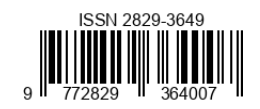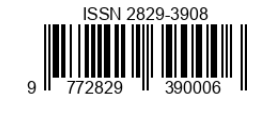Improving Student Learning Outcomes through the Use of the Learning Together Learning Model in Integrated Social Studies Subjects
DOI:
https://doi.org/10.56910/literacy.v4i2.2316Keywords:
Cooperative Learning, Learning Together, Student AchievementAbstract
This study aims to improve student learning outcomes by implementing the Learning Together instructional model in the Integrated Social Science subject for Grade VIII students at SMP Negeri 3 Kota Gorontalo. The researcher acted as the classroom teacher and was assisted by the subject teacher, who served as an observer The study was conducted in two cycles, each consisting of two class sessions. Each cycle included four stages. planning, implementation, observation, and reflection. Data collection techniques used in this study included observation, teacher activity observation sheets, student activity observation sheets, and documentation, all aimed at measuring improved student learning outcomes. The findings indicated increased student engagement from the initial condition through Cycle 1 and Cycle II. In Cycle II, both teacher and student activity data reached the predetermined success indicator of 80% student learning outcomes. Specifically, teacher activity achieved a 94% score, while student activity also reached 92%. Additionally, a significant improvement was observed in students' academic performance, with learning outcomes increasing from the pretest to the posttest by 93%. These results demonstrate that the Learning Together model effectively enhances student learning outcomes.
References
S. Sudaryanto, “Kamus Besar Bahasa Indonesia Edisi Kelima dalam Pembelajaran Bahasa Indonesia (Perspektif Filsafat Pendidikan Bahasa),” *Lateralisasi*, vol. 8, 2020.
A. N. Anisa, “Ki Hajar Dewantara dan Revolusi Pendidikan pada Masa Pergerakan Nasional di Indonesia,” *Jurnal Pendidikan Sejarah & Sejarah FKIP Universitas Jambi*, vol. 3, no. 1, 2023.
W. Mursyidi, “Kajian Teori Belajar Behaviorisme dan Desain Instruksional,” *Jurnal Pendidikan Islam*, vol. 3, no. 1, 2020.
S. Saptono, “Penerapan Model Pembelajaran Kooperatif Tipe STAD untuk Meningkatkan Prestasi Belajar IPS Siswa Kelas VII-G SMPN 07 Malang pada Materi Lembaga Sosial,” *Jurnal Pendidikan Sejarah*, vol. 1, no. 1, pp. 54–, 2013.
M. Fathurrohman, *Model-Model Pembelajaran Inovatif*. Yogyakarta: Ar Ruzz Media, 2015.
R. E. Slavin, *Cooperative Learning: Theory, Research, and Practice*. Boston: Allyn & Bacon, 2011.
R. E. Slavin, *Cooperative Learning: Teori, Riset dan Praktik*. Bandung: Nusa Media, 2015.
A. Kurniawan, “Faktor yang Mempengaruhi Hasil Belajar Siswa,” 2022.
I. Maduratna and D. Setyawan, *Unsur-Unsur yang Mempengaruhi Hasil Belajar*. Yogyakarta: Graha Ilmu, 2020.
N. Sudjana, *Hasil Belajar: Teori dan Praktik*. Bandung: Alfabeta, 2021.
Sugiyono, *Metode Penelitian Pendidikan: Pendekatan Kuantitatif, Kualitatif, dan R&D*. Bandung: Alfabeta, 2021.
U. Mansyur and R., “Pelatihan Penelitian Tindakan Kelas bagi Guru MTs Mizanul ‘Ulum Sanrobone Kabupaten Takalar,” 2019.
Suyadi, “Tujuan dan Manfaat Model Pembelajaran Learning Together,” *Penerbit Pendidikan*, 2011.
Suyadi, *Model Pembelajaran Learning Together: Efektivitas dan Dampaknya terhadap Hasil Belajar Siswa*. Penerbit Pendidikan, 2012.
Downloads
Published
How to Cite
Issue
Section
License
Copyright (c) 2025 LITERACY : International Scientific Journals of Social, Education, Humanities

This work is licensed under a Creative Commons Attribution-ShareAlike 4.0 International License.







